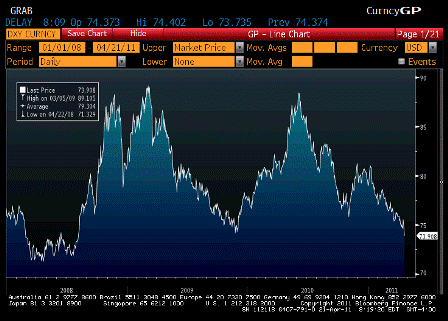Yes, the deficit went from 6.3% to 6% of GDP, but the question remains as to whether they are at the point where further slowing from austerity measures continue to reduce the overall deficit or, instead, an induced slowdown begins to increase it.
Euro Zone 2010 Deficit Shrinks, Debt Rises
April 26 (Reuters) — The euro zone’s aggregated budget deficit fell last year as most countries slashed government spending to restore market confidence in public finances, but the debt still grew, Eurostat data showed.
The European Union’s statistics office said on Tuesday the budget deficit in the euro zone in 2010 was 6.0 percent of gross domestic product, down from 6.3 percent in 2009. Public debt, however, rose to 85.1 percent from 79.3 percent in 2009.
All euro zone countries except Germany, Ireland, Luxembourg and Austria improved their budget balance last year, but debt rose in all euro zone countries except Estonia.
Eurostat said Greece, which was forced to seek emergency funding from the euro zone last year because it was effectively cut off from market borrowing due to its large debt, cut its budget gap to 10.5 percent of GDP from 15.4 percent in 2009.
This is well above the initial target of the Greek austerity programme of 8 percent and even above the latest estimate from the European Union and the International Monetary Fund of 9.6 percent.
Greek public debt rocketed to 142.8 percent of GDP from 127.1 percent in 2009.
Ireland saw its budget deficit more than double to 32.4 percent of GDP last year from 14.3 percent in 2009 and its debt jumped to 96.2 percent from 65.6 percent as the country had to borrow to bail out its banking sector.


